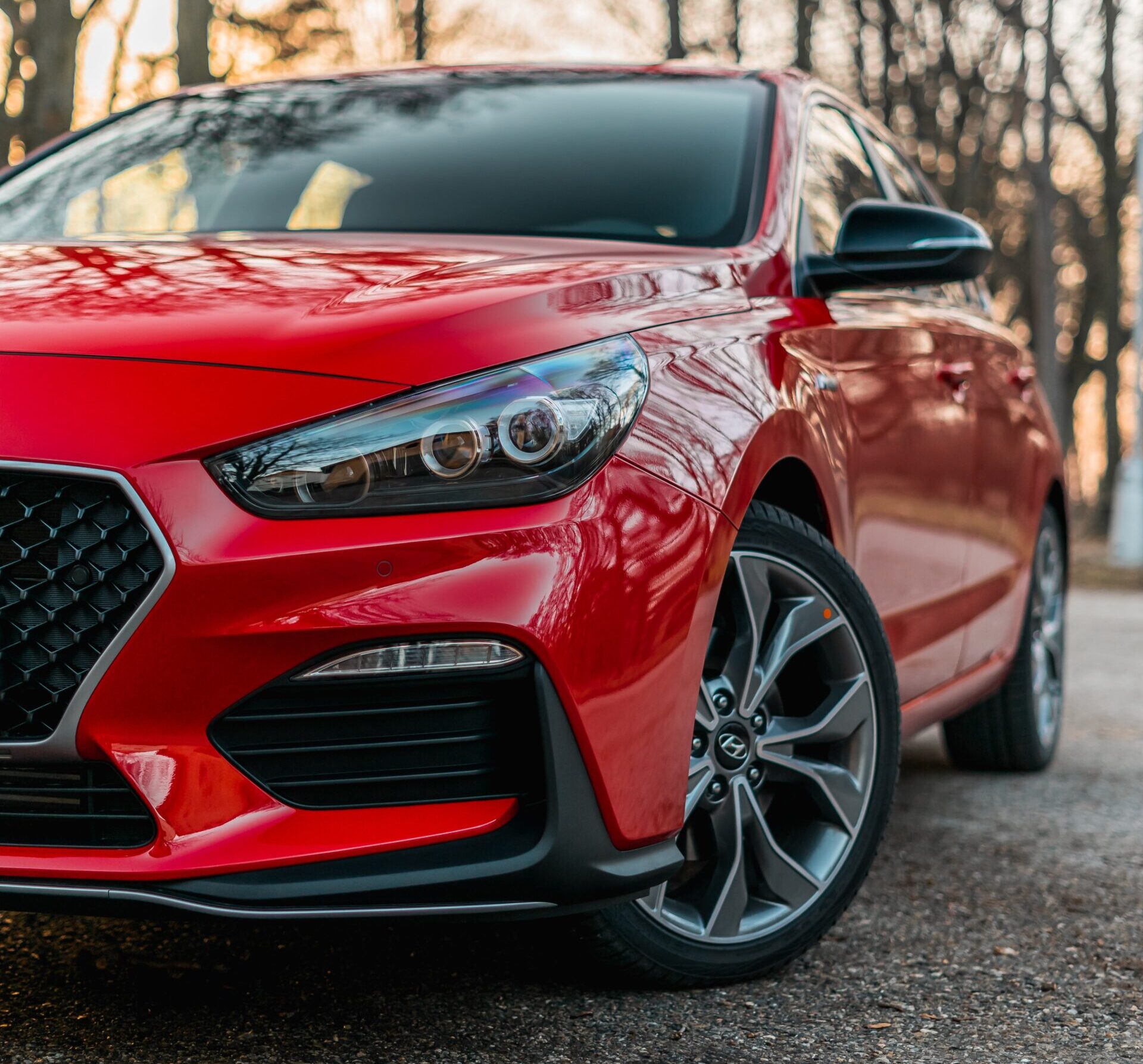Support our educational content for free when you purchase through links on our site. Learn more
[2023] Tax Benefits of Leasing a Car vs. Buying a Car for Business: Explained
Quick Answer: Leasing a car for business purposes can offer several tax benefits, including deductions for lease payments, mileage, and other expenses. However, buying a car also has its advantages, such as depreciation deductions and potential tax credits. The decision between leasing and buying depends on various factors, including your business needs, financial situation, and long-term goals.
Table of Contents
- Quick Answer
- Quick Tips and Facts
- Background
- Tax Deductions for Business Vehicles
- Expense Differences between Leased and Purchased Vehicles
- Is it Better to Lease or Purchase a Business Vehicle?
- Depreciation Deduction and Actual Expense Deduction
- Other Tax Benefits of Leasing a Car
- Pros and Cons of Leasing vs. Buying a Car
- Should You Lease and Then Buy a Car?
- Pros and Cons of Taking Over Car Lease Payments
- FAQ
- Conclusion
- Recommended Links
- Reference Links
Quick Answer
Leasing a car for business purposes can provide several tax benefits, including deductions for lease payments, mileage, and other expenses. However, buying a car also has its advantages, such as depreciation deductions and potential tax credits. The decision between leasing and buying depends on various factors, including your business needs, financial situation, and long-term goals.
Shopping Links: Leased Cars | Purchased Cars
Quick Tips and Facts
- Leasing a car allows you to deduct lease payments as a business expense.
- The standard mileage rate deduction can be used for both leased and purchased vehicles.
- Purchased vehicles qualify for depreciation deductions, while leased vehicles do not.
- State and local sales tax can be deducted for both leased and purchased vehicles, up to a certain limit.
- Self-employed individuals and business owners can deduct car loan interest on auto loans.
- Leasing a car may have lower upfront costs and smaller monthly payments compared to buying.
- The decision between leasing and buying should consider factors such as mileage limits, condition requirements, monthly payments, and long-term costs.
Background
When it comes to using a car for business purposes, there are various tax considerations to keep in mind. The Internal Revenue Service (IRS) allows businesses to deduct certain expenses related to the use of a vehicle for business purposes. This includes both leased and purchased vehicles. However, the specific tax benefits and deductions can vary depending on whether you lease or buy a car.
Tax Deductions for Business Vehicles
1. Lease Payments Deduction
One of the main tax benefits of leasing a car for business purposes is the ability to deduct lease payments as a business expense. The IRS allows businesses to deduct the actual cost of leasing a vehicle, subject to certain limitations. This deduction can help reduce your taxable income and lower your overall tax liability.
2. Mileage Deduction
Both leased and purchased vehicles can qualify for the standard mileage rate deduction. For the tax year 2023, the standard mileage rate for business use is 65.5 cents per mile driven. This deduction allows you to deduct a certain amount for each mile driven for business purposes. It can be a simpler method compared to tracking and deducting actual expenses.
3. State and Local Sales Tax Deduction
State and local sales tax paid on a vehicle can be deducted as a business expense, subject to certain limitations. For both leased and purchased vehicles, the deduction is limited to the amount of sales tax paid up to $10,000. This deduction can help offset the cost of acquiring a vehicle for business use.
Expense Differences between Leased and Purchased Vehicles
1. Depreciation Deduction
One of the key differences between leasing and buying a car for business purposes is the ability to claim depreciation deductions. Only purchased vehicles qualify for the depreciation deduction, which allows you to recover the cost of the vehicle over time. The depreciation deduction is determined using the Modified Accelerated Cost Recovery System (MACRS) and can provide significant tax savings.
2. Actual Expense Deduction
Both leased and purchased vehicles can qualify for the actual expense deduction. This deduction allows you to deduct the actual expenses associated with using a vehicle for business purposes. These expenses can include fuel, maintenance, repairs, insurance, and other related costs. However, it’s important to keep detailed records and accurately allocate expenses between personal and business use.
Is it Better to Lease or Purchase a Business Vehicle?
The decision between leasing and buying a car for business purposes depends on various factors. Here are some considerations to help you make an informed decision:
- Upfront Costs: Leasing a car typically requires lower upfront costs compared to buying. Leases often require a smaller down payment and may not require a large initial cash outlay.
- Monthly Payments: Lease payments are generally lower than loan payments for a purchased vehicle. This can help improve cash flow and provide more flexibility in managing your business finances.
- Mileage Limits: Leased vehicles often come with mileage limits, and exceeding these limits can result in additional fees. If your business requires extensive travel or high mileage, buying a car may be a better option.
- Condition Requirements: Leased vehicles must be returned in good condition, subject to normal wear and tear. Excessive wear or damage may result in additional charges. If your business involves rough use or specialized modifications, buying a car may be more suitable.
- Long-Term Costs: Leasing a car may result in higher long-term costs compared to buying. While lease payments are typically lower, you don’t build equity in the vehicle, and you may need to lease a new car every few years.
- Tax Considerations: Leasing a car offers specific tax benefits, such as deductions for lease payments. On the other hand, buying a car allows for depreciation deductions and potential tax credits. Consult with a tax professional to determine the best option for your specific tax situation.
Depreciation Deduction and Actual Expense Deduction
1. Depreciation Deduction
The depreciation deduction is a significant tax benefit for businesses that purchase vehicles. It allows you to recover the cost of the vehicle over time, reducing your taxable income. The depreciation deduction is determined using the MACRS, which assigns a specific recovery period and depreciation method based on the type of vehicle.
2. Actual Expense Deduction
The actual expense deduction allows you to deduct the actual expenses associated with using a vehicle for business purposes. This includes fuel, maintenance, repairs, insurance, and other related costs. Both leased and purchased vehicles can qualify for the actual expense deduction, subject to accurate record-keeping and allocation of expenses between personal and business use.
Other Tax Benefits of Leasing a Car
In addition to lease payment deductions and mileage deductions, leasing a car for business purposes can offer other tax benefits. These may include:
- Sales Tax Deduction: As mentioned earlier, state and local sales tax paid on a leased vehicle can be deducted as a business expense, subject to certain limitations.
- Interest Deduction: If you finance the lease of a car, the interest paid on the lease can be deducted as a business expense. This can help reduce your taxable income and lower your overall tax liability.
- Section 179 Deduction: In certain cases, leased vehicles may qualify for the Section 179 deduction, which allows businesses to deduct the full cost of qualifying assets in the year they are placed in service. However, specific eligibility requirements apply, and it’s important to consult with a tax professional.
Pros and Cons of Leasing vs. Buying a Car
When considering whether to lease or buy a car for business purposes, it’s important to weigh the pros and cons of each option. Here are some key points to consider:
| Leasing a Car for Business | Buying a Car for Business |
|---|---|
| Lower upfront costs | Potential depreciation deductions |
| Smaller monthly payments | Potential tax credits and incentives |
| Access to newer vehicles | Building equity in the vehicle |
| Limited mileage | No mileage restrictions |
| Return the vehicle at the end of the lease | Ownership of the vehicle |
| Potential excess mileage fees and early termination expenses | No additional fees for excess mileage or early termination |
Should You Lease and Then Buy a Car?
Some individuals may consider leasing a car for a period and then buying it at the end of the lease term. This option can provide flexibility and allow you to test a vehicle before committing to a purchase. However, it’s important to carefully evaluate the financial implications and consider factors such as the lease buyout price, residual value, and overall cost of ownership.
Pros and Cons of Taking Over Car Lease Payments
Taking over someone else’s car lease can be an alternative option for acquiring a vehicle for business purposes. Here are some pros and cons to consider:
Pros:
- Potentially lower monthly payments compared to leasing a new car.
- No upfront costs or down payment required.
- Immediate access to a vehicle without a long-term commitment.
Cons:
- Limited vehicle selection based on available lease transfers.
- Assumption of any existing lease terms and conditions.
- Responsibility for any excess mileage or wear and tear fees.
FAQ
Is leasing a car a good tax write off?
Yes, leasing a car can be a good tax write-off for business purposes. Lease payments can be deducted as a business expense, reducing your taxable income. Additionally, other expenses related to the leased vehicle, such as fuel, maintenance, and insurance, can also be deducted as actual expenses.
Is it more financially beneficial to lease or buy a car?
The financial benefits of leasing or buying a car depend on various factors, including your business needs, financial situation, and long-term goals. Leasing a car may have lower upfront costs and smaller monthly payments, but you don’t build equity in the vehicle. Buying a car allows for depreciation deductions and potential tax credits, but it may require a larger upfront investment.
Read more about “… How much is a lease on a $45,000 car?”
What is the downside of leasing a vehicle?
Some potential downsides of leasing a vehicle include mileage restrictions, condition requirements, and additional costs such as early termination fees and excess mileage fees. Leasing also means you don’t own the vehicle and will need to lease a new car every few years, resulting in higher long-term costs compared to buying.
Read more about “… Advantages and Disadvantages of Leasing a Car”
Is leasing a car better for self-employed?
Leasing a car can be a good option for self-employed individuals, as it allows for deductions of lease payments and other related expenses. It can provide flexibility in managing cash flow and may offer access to newer vehicles. However, it’s important to consider your specific business needs and consult with a tax professional to determine the best option for your situation.
Conclusion
When it comes to the tax benefits of leasing a car vs. buying a car for business purposes, there are several factors to consider. Leasing a car can offer deductions for lease payments, mileage, and other expenses. On the other hand, buying a car allows for depreciation deductions and potential tax credits. The decision between leasing and buying depends on your business needs, financial situation, and long-term goals. Consider factors such as upfront costs, monthly payments, mileage limits, condition requirements, and long-term costs. Consult with a tax professional to determine the best option for your specific tax situation.
Recommended Links
- Latest Car Lease Deals
- Car Lease Basics
- Best Lease Terms
- Credit Score and Car Leasing
- 2023 Advantages and Disadvantages of Leasing a Car




